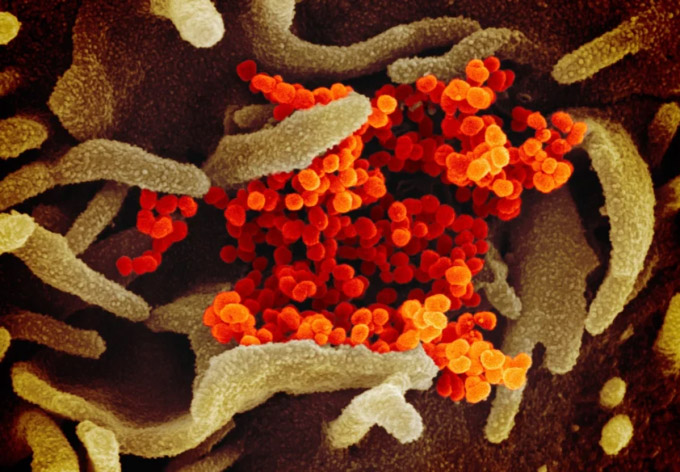Recent research reveals that the JN.1 variant of the Covid virus has the ability to infect cells in the lower lung region, potentially causing more severe symptoms in infected individuals.
The study, published in the journal Cell in early January, indicates that JN.1 exhibits enhanced adherence to cells and actively participates in host cell membrane fusion. JN.1 is considered the next generation of BA.2.86, carrying approximately 60 more mutations in the spike protein compared to the original nCoV version and 30 more mutations than the closely related Omicron strain (including BA.2 and XBB.1.5). Scientists are concerned that the increased number of changes and mutations may lead to challenging outbreaks similar to the Omicron variant in 2021 and 2022.
Lead author Shan-Lu Liu, a professor of virology at the Ohio State University, highlights that BA.2.86 and its descendants, especially JN.1, demonstrate a significantly improved ability to infect lung epithelial cells compared to previous Omicron strains. This raises potential concerns about the virus’s virulence, particularly given the current scenario where vaccines exhibit reduced effectiveness and people may be more susceptible.

Professor Liu emphasizes that individuals who have previously had Covid-19 should be aware that Omicron is less virulent than earlier strains like Delta, leading to milder symptoms. Consequently, the antibodies produced in individuals infected with Omicron are approximately ten times lower than those generated by vaccines. This underscores the importance of not relying solely on natural infection to boost immunity, and vulnerable individuals, including those with underlying medical conditions, are recommended to receive annual vaccinations.
BA.2.86 and its descendants, notably JN.1, are spreading globally, with the World Health Organization (WHO) designating them as “variants of concern” (VOI) in December. Infected individuals with JN.1 typically exhibit symptoms such as cough, muscle pain, sore throat, headache, and a runny nose. In the US, JN.1 is most active in the Northeast regions, particularly in states like New Jersey and New York, and it is recognized as the most rapidly spreading mutation requiring close monitoring. Recent cases in Thailand have also recorded severe outcomes, with individuals on ventilators and fatalities associated with JN.1 infection, predominantly among those who were either unvaccinated or not fully vaccinated.




